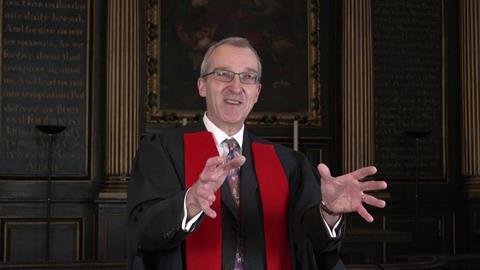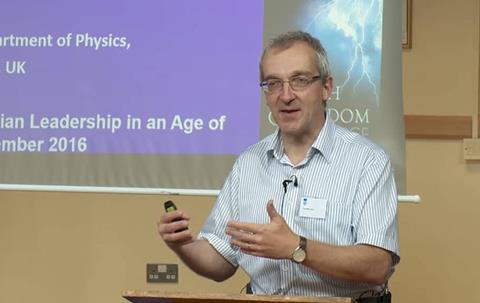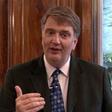Tom McLeish was one of the world’s leading scientists. His theology of science was groundbreaking, and played a vital role in bringing many to faith. His colleague at Durham University, Rev Prof David Wilkinson remembers him

The death of Professor Tom McLeish brings to an end a remarkable chapter in the story of the fruitful interaction of science and Christian faith.
Tom’s wide body of academic work combined with his powerful testimony of the life and love of Jesus Christ impacted not just fellow staff and students but made a lasting change to the way that science is viewed by church leaders and members of the general public throughout the world.
He was one of the world’s leading scientists, given the highest scientific recognition when he was elected to be a Fellow of the Royal Society in 2011.
His research, which spanned physics, chemistry and biology, explored soft matter such as liquids, polymers and biological materials. But alongside his science he worked on subjects in theology, history, social sciences and the arts. In his book Faith and Wisdom in Science he demonstrated biblical expertise on the book of Job and brought it into dialogue with a theology of science.
Tom knew that the Lordship of Christ over all things meant that this had to be as true in the lab on a Monday as in church on the Sunday
In The Poetry and Music of Science: Comparing Creativity in Science and Art he showed how his love of music and poetry could both illuminate the scientific enterprise and respond to it.
After a number of professorial posts in physics, in recognition of his wide range of expertise he was appointed in 2018 as Professor in Natural Philosophy at the University of York.

Tom hated the naïve characterisation of science ‘versus’ religion, seeing that in history and indeed in his own life this was a misleading simplification. Neither did he like the notion of science ‘and’ religion where the two were kept in completely different compartments. Tom knew that the Lordship of Christ over all things meant that this had to be as true in the lab on a Monday as in church on the Sunday. He therefore argued for the importance of a theology ‘of’ science, where Christians see science as a gift from God. As a gift it needs to be used for the benefit of others. While it does not itself lead to salvation, it can be used for healing, reconciliation and illuminating the work of God in creation.
It was out of this conviction that Tom co-founded the initiative ECLAS – Equipping Christian Leadership in an Age of Science. Its initial aim was to change the culture among Christian leaders towards science. Too often senior Christian leaders view science with fear and negativity, leading to an undermining of Christians within local churches who see their work as a science teacher, an engineer, or a technologist as their Christian vocation and discipleship. Through a combination of conferences for senior leaders, working with theological colleges and local churches, over the past ten years ECLAS has been influential in Christian leaders engaging with science in mission and ministry with joy.
He was loved and respected for his humility, his sense of fun and commitment to truth
Tom embodied that joy in his scientific work, his Christian faith and his everyday life. He had insatiable curiosity in asking questions, stemming from wonder rather than cynicism. He also had a deep joy in seeing others flourish, giving time to students and younger colleagues to provide them with guidance and support in their own careers and vocations.
He was an Anglican lay reader, at home as much in the context of a sermon as in a scientific lecture. His heartland was charismatic evangelicalism, taking scripture seriously, being committed to prayer and worship and seeing mission as both evangelism and social caring and justice. But he was never defined by a label. He thus was able to speak to students at Word Alive while at the same time writing an article for an audience of Roman Catholics in Eastern Europe.
Alongside all of these achievements, Tom was a human being who demonstrated generous friendship to all, eager to serve, help, comfort and encourage. He took delight in the love that he shared with his wife and children. He often spoke of them, both with pride and in the way that they were such an important part in enabling his work. Loved and respected for his humility, his sense of fun and commitment to truth, generations of students and colleagues were shaped by his work and his life. At the heart of this was a Christian faith which saw the whole of life as a gift from God.
Tom was diagnosed with pancreatic cancer in 2022. His last months of life were characterised by strong faith in the face of increasing physical weakness. He continued to spend time writing and supporting younger colleagues and friends. Most of all he relished the time he had with his wife Julie, his children and wider family. Those who had the privilege of visiting him were touched by the powerful presence of God in the life of this remarkable man.

































